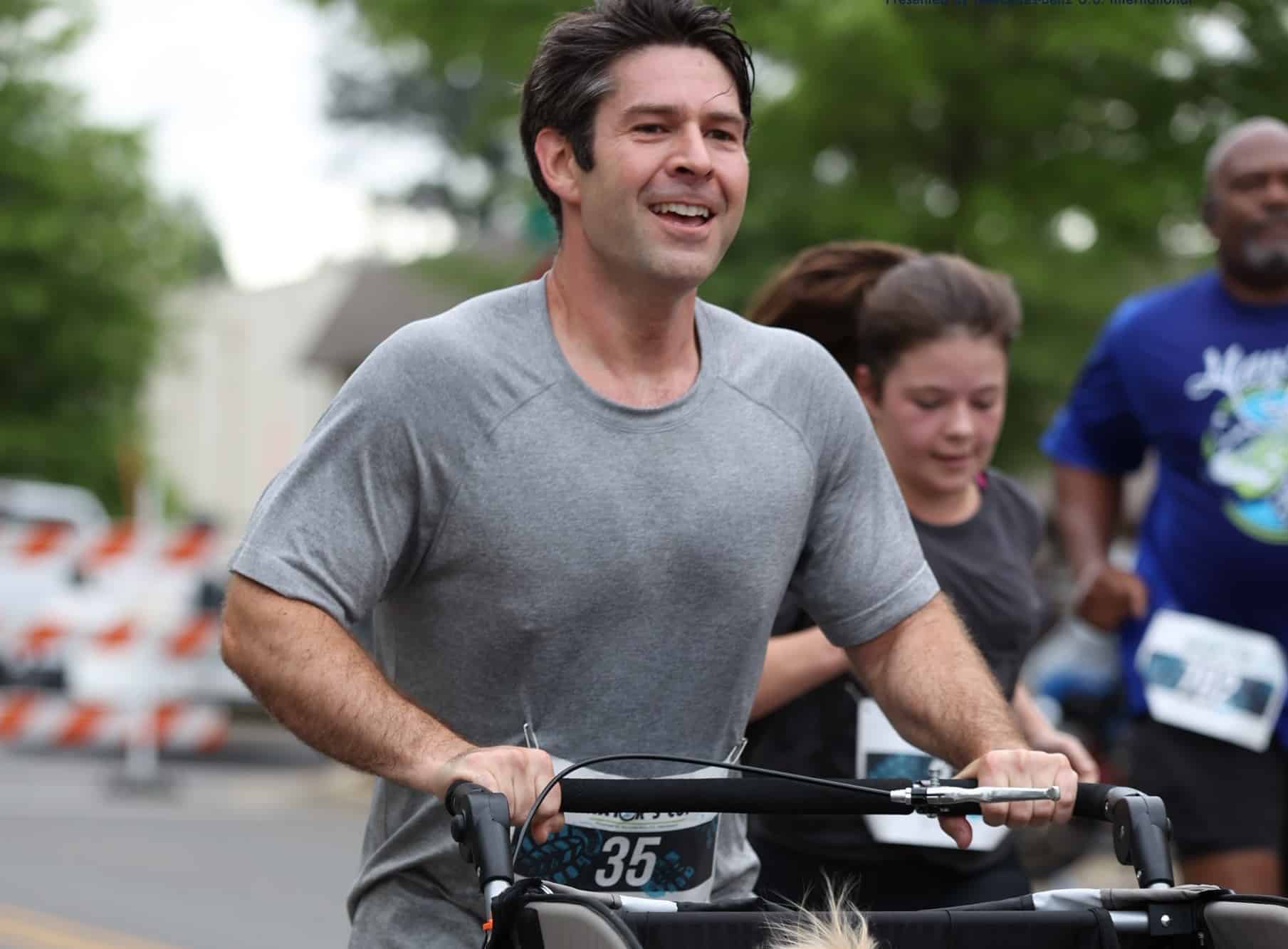3 Legit Reasons Why Runners Drink Coke (What Science Says About Performance)
From the start, Coca-Cola has been an American staple. The crisp, refreshing taste of an ice-cold Coke pairs just as well with a hotdog and a baseball game as it does popcorn and movie. But did you know that it can also be a great complement to a long run?
Runners drink Coke because the caffeine can give a much-needed energy boost, the simple sugars may help regulate blood sugar, and it’s just plain delicious when you’re hot and sweaty. Runners typically prefer to drink their Coke flat to avoid the unpleasant sensation of a gassy run and to slow the absorption of caffeine into the bloodstream.
Read on to discover why runners drink Coke, whether or not it’s good for runners, and if Coke is a recommended beverage for runners looking to increase their performance.
Reasons why runners drink Coke
Coke gets a bad rap, and rightfully so. It’s loaded with high fructose corn syrup and additives that have been linked to carcinogenic properties. However, runners have their reasons for making it a beverage of choice and science supports them.
Runners drink Coke for multiple different reasons including:
- the caffeine boost
- to regulate blood sugar
- it’s easy to drink
Let’s take a look at each of these reasons to discover why runners love Coke, and what science has to say about it.
Caffeine boost
Many times, especially in longer races, runners hit “the wall.” Their energy caps out and they need an extra boost to finish their grueling race or workout.
Coke has modest caffeine levels that boost runners when they need extra energy. This can be before a shorter race to enhance performance or during long workouts when prolonged energy expenditure is necessary.
A 12-ounce can of Coke has 32 milligrams of caffeine. This isn’t nearly the level of caffeine found in a cup of coffee or a scoop of pre-workout powder, but it’s enough to provide a burst of energy.
Coke makes you a faster runner by increasing fat utilization in long-term running scenarios. It helps runners reach the running high too!
Regulate blood sugar
Blood glucose is not only an important indicator for everyday health, but it’s also important that runners monitor it. Unattended, blood glucose levels can drop and result in a serious energy crash.
Runners drink Coke to regulate their blood sugar – also known as blood glucose – levels while running. Maintaining a steady blood glucose level is essential to having a good workout or race performance.
When looking at the nutrition facts on a can of Coke, it can be frightening. Coke has lots of added sugar, but this can be of use to runners.
When running, glucose is quickly depleted by hard-working muscles. With Coke’s surplus of sugar, the body then has a readily available source of glucose to use as fuel.
If glucose levels drop too low, runners’ energy levels are subject to a severe hit. Drinking Coke helps to avoid this crash.
Easy to drink
Coffee has more caffeine than Coke and isn’t full of added sugar, so why not drink coffee during a long run?
Runners drink Coke during their workouts because of its enjoyable taste. Coke is sweet and usually enjoyed ice-cold. During a hot workout, Coke is the perfect remedy for low energy.
It’s refreshing during a workout; a hot cup of coffee is not likely to be as enjoyable.
When workouts are extended and energy boosts are needed frequently (in marathon training, for example), Coke becomes a necessary supplement at frequent intervals. It’s much easier to stick to this interval when runners can drink something they enjoy.
Is Coke good for runners?
Examined through the lens of everyday health, Coke is supposed to be horrible for you. It’s highly carbonated, loaded with added sugar, and made with all sorts of chemicals and processed ingredients that doctors would surely disapprove of.
Even though Coke is bad for everyday individuals, is it possible that Coke could be good for runners?
Under the right circumstances, Coke can be good for runners. It provides a much-needed energy boost and sustains regulated blood glucose levels over longer workouts.
As with all things, moderation is key. Coke is good for runners – unless they abuse it. Coke is, after all, sugar-filled soda.
It’s advisable for runners to drink Coke only when absolutely necessary. Shorter workouts and low-intensity workouts should not require Coke to complete.
In terms of when to drink Coke, it depends on the reason. When drinking Coke for a short race or sprint workout, drink Coke before so you’re loaded with caffeine and subject to spiked blood glucose levels for you to deplete.
If you’re a long-distance runner, Coke can still be had prior to your race or workout, but you will benefit from intra-workout consumption of Coke to sustain energy levels over a long period of time.
Why do marathoners drink Coke?
Running a marathon is no easy feat. With 26.2 miles to cover, runners need an extra energy boost.
Marathoners drink Coke to boost their energy for the latter portion of their races. By consuming Coke periodically over the course of the race, marathoners receive energy from caffeine and simple sugars that supply the muscles with glucose.
For marathoners specifically, Coke provides a prolonged energy boost when consumed periodically in small doses. By doing this, runners who participate in marathons achieve multiple benefits.
Drinking Coke as a marathoner boosts readily available fatty acids in the bloodstream, resulting in a new energy source aside from carbohydrates. Endurance athletes tend to deplete their carbohydrate stores quickly, so having lipids as a backup is advantageous.
Drinking Coke for long-distance running also helps to maintain blood glucose levels and prevents runners from feeling lightheaded. Wouldn’t want to pass out during a marathon, right?
Does Coke reduce stamina or give you energy?
Coke is notorious for its high sugar content, resulting in a massive sugar crash. Does this mean that Coke can reduce a runner’s stamina, or will it actually increase a runner’s energy?
Coke provides runners with extra energy through sustained caffeine boosts and steady blood glucose levels. In other words, runners gain a boost in energy while also avoiding the sugar crash that typically accompanies Coke.
Caffeine gives you energy; that much makes sense. However, a sustained increase in blood glucose levels without the spike seems contradictory to the nature of Coke.
Coke is made of simple sugars, so consumption increases blood glucose levels. These blood glucose levels are sustained because sugar consumption is coupled with caffeine consumption.
When caffeine is consumed, epinephrine and norepinephrine are released. These are hormones commonly thought of as adrenaline. When these adrenaline hormones are released, blood glucose levels remain at an increased level for a prolonged period.
Rather than reducing a runner’s stamina, Coke provides a sustainable energy source that can boost performance when consumed responsibly.
Does Coke hydrate the body or provide electrolytes?
When we think of hydrating drinks to consume for running, Coke is definitely not the first to come to mind. I personally think of water or a sports drink like Gatorade. Is Coke suitable for running due to its hydrating capabilities?
Coke does not sufficiently hydrate or provide electrolytes to runners when consumed. While Coke does have a high water content, it also contains caffeine, a natural diuretic that contributes directly to dehydration.
Coke’s hydration abilities are best examined through a comparative lens. Is Coke capable of hydrating runners? Yes, it has a relatively high water content.
However, is Coke the best option for hydrating during a workout? Absolutely not. Nothing beats water or a sports drink like Gatorade, which is loaded with electrolytes that Coke lacks.
Coke has another major downside in terms of hydration: it contains caffeine, a natural diuretic. When consumed, caffeine has a tendency to increase urinary output, consequently dehydrating those who consume it.
This means that Coke is a double-edged sword; yes, it has mediocre hydrating capabilities, but it likely dehydrates you at the same time. It’s best to stick with water for pure hydration purposes.
Why do people crave Coke after running?
Runners and other athletes use Coke for an intra-workout energy boost, but why do runners crave Coke after finishing their workout?
Runners crave Coke post-workout for its caffeine boost and sugary taste.
Nothing is better than a refreshing, ice-cold beverage following a tough workout. Coke is just that and more.
With its caffeinated properties, Coke gives runners energy after a draining workout. Simple sugars are also easily absorbed into the bloodstream and provide extra energy as well.
Coke also tastes great. It’s a reward for hard work!
Why do runners drink flat Coke?
Coke is a carbonated drink fizzing with bubbles when you first crack the seal on a new can. Why do runners prefer to drink Coke flat?
Runners drink flat coke to reduce stomach discomfort. When runners drink carbonated Coke and proceed to run, the gas in their stomachs makes for an uncomfortable workout.
Runners prefer flat Coke mainly for personal comfort. While a cyclist can get away with drinking carbonated cola because their bodies are stationary on their bikes, runners cannot afford this same luxury.
When running, your stomach tends to move around. If you drink too much water or Gatorade, you can feel it sloshing around in your gut. Imagine how unpleasant it would be to have carbonated Coke doing that!
Runners also drink flat coke to extend the lifespan of sugar in their bloodstream. Less carbon dioxide leads to less sugar being absorbed by the bloodstream. This yields a sustainable energy boost.
Is it OK to drink Coke before or after a workout?
Outside of running, there are many different athletes who may want to use Coke to their benefit. This could be cyclists, weightlifters, football players, etc. Is it OK for them to drink Coke before or after a workout?
It is OK to drink Coke before or after a workout if it’s consumed properly. It’s recommended to consume flat Coke rather than carbonated Coke to avoid discomfort in the abdominal region. However, there are better alternatives to Coke.
Coke can be had before or after a workout. Flat Coke is preferable to carbonated Coke in order to avoid excessive belching and discomfort mid-workout.
Coke may not be the best option for all athletes, however. It depends on your situation.
For the athlete putting themself through 2- or 3-hour long workouts, go ahead and have a Coke. The risks far outweigh the benefits for the casual gym-goer who lifts weights for an hour.
Consuming excessive amounts of Coke have negative health impacts due to the high fructose corn syrup. If you don’t absolutely need the energy boost, it’s most sensible to avoid soda.






